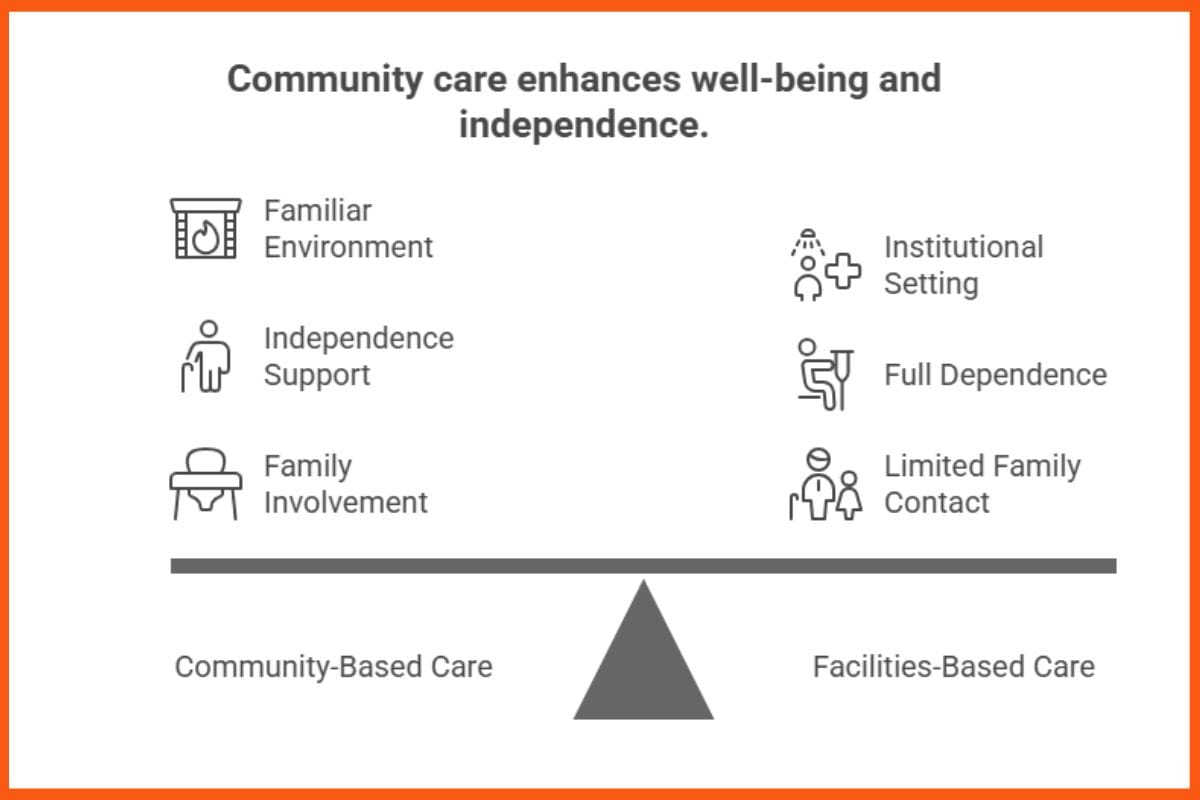This article has been contributed by Mr. Remeshan Palery, Chairman, Uralungal Labour Contract Co-operative Society
India is now at a demographic crossroad, with the promise of the country’s economic development intersecting with the rapidly ageing population of over 140 million. The nation’s elderly population, defined as those aged 60 and above, is projected to further grow to 193.4 million by 2031, almost one-fourth of the total citizenry. This comes with its own set of challenges like how to care for the ageing while simultaneously tackling issues related to infectious diseases, maternal and child health, and the increasing prevalence of non-communicable diseases.
The challenge ahead is not so much as to how to care for our seniors but how to do it in a way that preserves dignity and purpose, while maintaining social connections. Old-age homes have long been synonymous with elderly care globally. These avenues provide support, yet they highlight the need for more holistic spaces where care and companionship come together. The future of care of India’s senior citizens should not only be limited to the institutions but attention should be made towards the community.
Institutional Fatigue
Institutions draw strength from community contributions, which help provide medical supplies, equipment, and staff support. While some face infrastructural limitations, efforts are ongoing to create spaces where elderly residents can access regular healthcare and meaningful social engagement. Even more deeply, these spaces can cut off the heart’s attachment to the idea of ‘home’. The move to these types of homes for elderly is not only an uprooting from a familiar environment, but a loss of freedom and of social connections for some senior citizens.
This is not to imply that such institutions lack value; there is certainly a role for them in situations of neglect or severe illness. However, making institutionalisation the primary option is both costly and culturally invalid. The intergenerational and familial traditions in India call for more nuanced and implicit approaches.
Community Care Works Better

Across the globe, communities are addressing the challenge of providing elder care that maintains dignity, freedom, and social connection without uprooting them from their familiar environments. In South Korea, community-based elder circles actively involve seniors in the daily activities of the village. In Thailand, participatory day-care systems that engage residents have seen broader adoption and greater success. These systems do not displace elders from their surroundings; rather, they integrate support into their care networks.
The evidence is compelling. Community-based care and day-care services for the elderly boost mental well-being curb hospitalisation and can even delay the encroachment of long-term disabilities. Unlike facilities-based care, these alternatives believe ‘in ageing at home,’ which provides comfort in returning home each at the beginning and end of day while realising some level of independence while also needing some assistance. They ease the family’s load and the children can work without a guilty conscience, confident that their parents are being taken care of in a safe and stimulating environment.
Rewriting the Narrative
The Longitudinal Ageing Study of India revealed that nearly three-quarters of the elderly population suffer from one or more chronic illnesses, and about one-third exhibit symptoms of depression. Concentrating care only in urban centres leaves a significant opportunity to extend support to rural communities, where large populations of elderly seek accessible services.
Concurrent with this, the clinical picture of ageing is becoming more complex. Geriatricians remain locked in combat with the traditional ‘giants’ that still threaten, such as immobility, instability, incontinence, and cognitive decline. The pandemic of COVID-19 served, once again, to expose the frailties in what we consider elder care: older adults not only faced markedly elevated mortality risks but were also subjected to profound social isolation and undertreated mental health conditions. Such revelations reaffirm that, community-centre day-care lounges, where social stimulation, nutritional aid, and health surveillance merge, prove decidedly more advantageous than institutions that attend to only one of these domains.
With dementia and Alzheimer’s already affecting nearly 9 million elderly Indians—a number set to triple by 2050—the urgency for community-based care models becomes even greater. Such approaches not only provide medical oversight but also preserve dignity and social connection for those most vulnerable.

Growing Old Gracefully
At the centre of community care is respect. Elders are not merely patients or dependants to be enumerated but beings with interests, skills, and worth. A day-care programme with morning physiotherapy, noon lunch, and music or reading clubs in the afternoon makes ageing an activity of living and not waiting. While so doing, it also protects families from the shame of ‘sending’ parents away.
Observations from many corners of the world show that graceful ageing rarely depends on the finest amenities; instead, it revolves around the quiet power of being part of a community. Elders thrive when they can remain in homes they know, surrounded by neighbours, volunteer circle, and community health workers who arrive not as rote professionals but as family of choice. Such neighbourhood gatherings do not replace blood relatives; they expand the family tree. Elders receive the steady laughter of live neighbours instead of anonymous nightly shifts, keeping memory, compassion, and dignity fully intact, far from the chilly silence of many distant care facilities.
At the same time, institutions continue to play an important role in elder care—not as standalone endpoints but as partners within Community-Based Rehabilitation (CBR) models. While communities provide day-to-day support, social integration, and continuity of home life, institutions can strengthen these efforts with specialised healthcare, training, and resources. Together, this hybrid model ensures that seniors receive both the warmth of community and the expertise of medical systems.
Policy, Research, Culture
True, sustainable transformation in elder care can only succeed when national policy keeps pace with rapidly changing population trends. National health initiatives aimed at strengthening geriatric care and expanding wellness centres across the country offer clear potential. What is now mandated is strategic scaling in the direction of community-based care, so that seniors find virtually seamless support where they reside, into networks they already trust.
Simultaneously, it is essential that ageing research bring elderly participants on board as co-researchers and partners. Expanded collaboration guarantees that the proof is far more representative and that promising treatments centre on lived needs, not on assumptions. The next generation of breakthroughs will matter more when scientists design them with older adults’ actual physiology and day-to-day experience as the starting point, rather than simply adjusting formulations originally meant for younger cohorts.

Future Rooted in Community
For elderly care in India to be meaningfully reimagined, three deliberate turns are to be explored. The first is reallocation of financial resources: rather than more gated retirement projects, we must build tight-knit community hubs that bring services, social life, and safety within walking distance. The second turn has to be in financing itself: instead of individual contributions, we require blended models couched in long-term feasibility, where public subsidies, corporate responsibility pools, and local giving coalesce to create resilient everyday ecosystems. Finally, elderly care must be conceived in comprehensive breadth, including changing health requirements, resilient hearts, nourishing plates, and shared calendars, rather than bundled into a narrow, clinical script.
Demography will not defer: India will certainly see more older people. How compassion, creativity, and stamina reconfigure that demographic is a test of moral, not merely fiscal, value. Our next foot forward, must foreground a commitment not to build greater distance, but to anchor, honour, and reorganise the neighbourhoods we already walk through. That is not merely a managerial choice: it is a durable social inheritance we leave to the tomorrow we will itself be.

